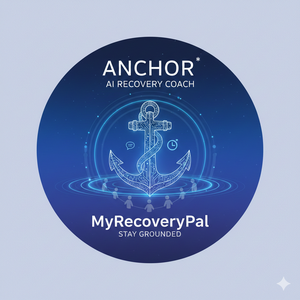
Subtitle: How Facing Disagreements Head-On Builds Inner Peace and Stronger Recovery
The Hidden Cost of Ducking Disagreements
“If you avoid conflict to keep the peace, you start a war within yourself.” Whether you’re in addiction recovery, navigating work stress, or healing relationships, sidestepping tough conversations isn’t serenity — it’s an internal battlefield. Each unspoken grievance piles up resentment, anxiety, and self-doubt, undermining your mental health and emotional well-being.
The Psychology of Conflict Avoidance
When you dread confrontation and constantly back away, your brain flips into fight-or-flight mode — even if no one’s yelling. Over time, this chronic avoidance coping becomes corrosive:
- Eroded Self-Worth: A Psychology Today article explains conflict avoidance creates a “fictitious reality” — you think you’re safe, but your unaddressed issues fester and undermine confidence.
- Mounting Stress: Verywell Mind notes that avoidance coping raises cortisol, leading to burnout, insomnia, and weakened immunity.
- Relationship Decay: According to Harvard Business Review, teams that dodge conflict see teamwork — and trust — erode, just as homes do when partners never speak up.
Bottom line: every unspoken truth is a wound that deepens, creating an internal war zone where your own peace can’t survive.
Conflict as a Path to Authentic Connection
Healthy conflict isn’t chaos — it’s the crucible of growth:
- Boosts Self-Respect: Speaking up says, “My feelings matter.”
- Invites Deeper Bonds: When you model honesty, others feel safe sharing their truths.
- Resolves Root Issues: A single candid conversation prevents a dozen silent assumptions.
As Pepperdine Business School research shows, positive conflict can ignite innovation and trust — whether in the boardroom or the living room.
A Step-by-Step Guide to Ending Your Inner War
- Tune In to Your Body: Notice tight shoulders or a racing heart when you face conflict. That’s your cue.
- Label the Fear: Mentally say, “I’m afraid they’ll reject me,” to create space between you and the emotion.
- Reframe the Stakes: Remind yourself, “Addressing this now saves me years of resentment later.”
- Speak with “I” Statements: “I feel hurt when…” keeps the focus on your experience, not their flaw.
- Seek Small Wins: Practice on low-stakes issues — deciding dinner or planning a weekend activity.
- Reflect and Adjust: Afterward, journal what went well and what you’d try differently next time.
Spiritual Wisdom on Embracing Conflict
Across faiths, honest dialogue is more sacred than silence:
- Christianity (Ephesians 4:15): “Speak the truth in love,” balancing honesty with compassion to build unity.
- Buddhism (Dhammapada): “Holding onto anger is like drinking poison,” urging us to release rage for our own freedom.
- Islam (Quran 49:13): “Know one another,” celebrating diversity of thought through respectful conversation.
- Hinduism (Bhagavad Gita 2.47): “Perform your duty without attachment,” teaching that detachment from outcomes frees you to act with integrity.
These traditions remind us that conflict approached with respect is not hostility — it’s a path to deeper understanding and inner peace.
Choose Peace Over the Battle Within
Dodging conflict might dodge a moment of discomfort — but it wages war in your soul. By facing disagreements with mindfulness, assertive communication, and spiritual courage, you dismantle that internal battleline and reclaim your serenity.
What’s one conversation you can bravely start today? Share in the comments — your courage could light the way for someone else.
🙏 If this resonated, please 👏 clap, comment your next bold conversation, and follow Normalize Sobriety for more stories on healing, honesty, and hope!
#ConflictResolution #MentalHealth #RecoveryJourney #NormalizeSobriety #AssertiveCommunication #InnerPeace #BreakTheSilence #SoberLiving #SpiritualGrowth

Comments (0)
Login to leave a comment.
No comments yet. Be the first to share your thoughts!